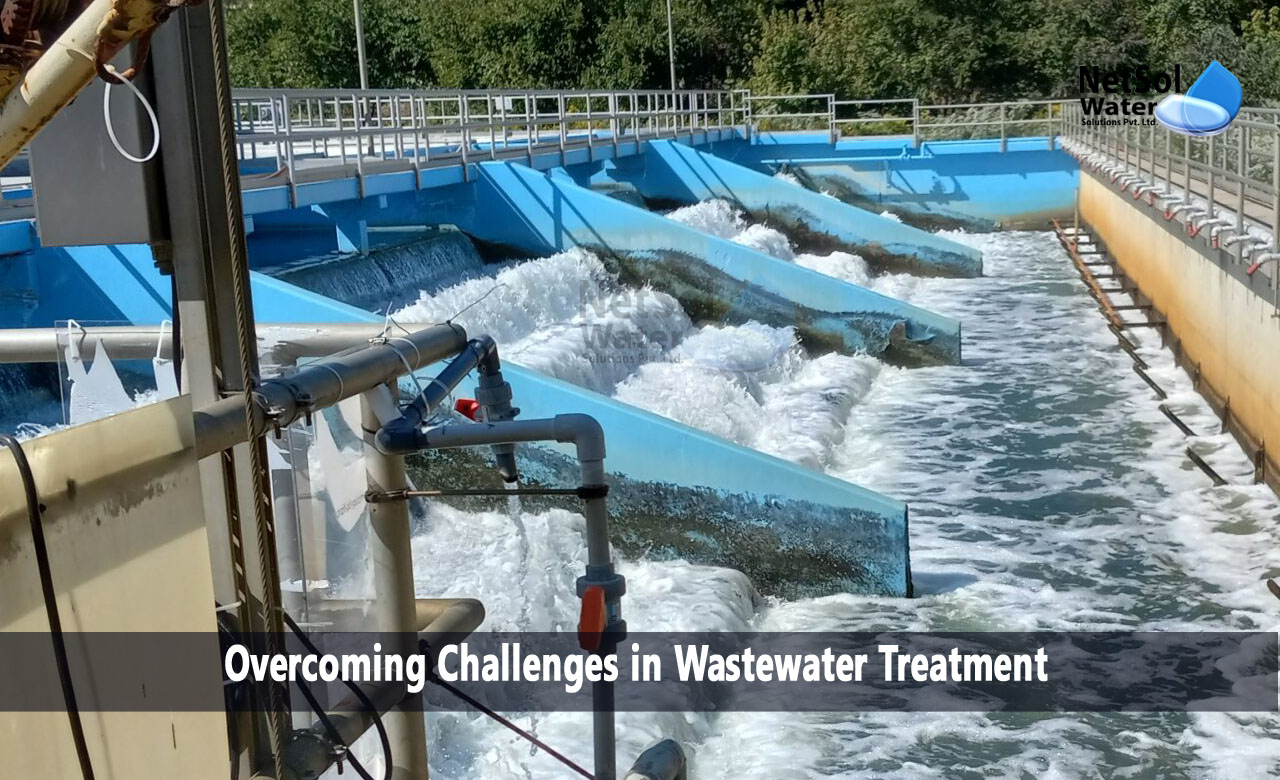Introduction:
Wastewater treatment is crucial for maintaining environmental sustainability andsafeguarding public health. However, the effective implementation of wastewater treatment faces several challenges. This blog aims to explore the barriers and obstacles encountered in wastewater treatment and discuss potential solutions to overcome them. By addressing these challenges, we can ensure the efficient and sustainable management of wastewater, protecting our ecosystems and promoting the well-being of communities.
Overcoming Challenges in Wastewater Treatment:
1. Aging Infrastructure and Investment:
One of the significant challenges in wastewater treatment is the aging infrastructure in many regions. Outdated treatment plants and inadequate sewer systems hinder the proper handling and treatment of wastewater. Aging infrastructure often leads to increased energy consumption, inefficiencies, and frequent breakdowns, compromising the effectiveness of the treatment process.
To overcome this challenge, there is a need for substantial investment in upgrading and modernizing wastewater treatment infrastructure. Governments, communities, and private entities should collaborate to secure funding and develop long-term plans for infrastructure renewal. Investing in advanced technologies, improving maintenance practices, and expanding treatment capacity can enhance the efficiency and reliability of wastewater treatment systems.
2. Emerging Contaminants and Chemicals of Concern:
The presence of emerging contaminants, such as pharmaceuticals, personal care products, and industrial chemicals, poses a significant challenge for wastewater treatment. These compounds are not effectively removed by conventional treatment processes, resulting in their release into the environment. Their potential impacts on ecosystems and human health are still being studied, but early research suggests potential risks.
Addressing emerging contaminants requires advancements in treatment technologies and processes. Research and development efforts should focus on improving the removal efficiency of these compounds during wastewater treatment. Implementing advanced oxidation processes, membrane filtration, and activated carbon adsorption can help remove emerging contaminants effectively.
3. Energy Consumption and Carbon Footprint:
Wastewater treatment is an energy-intensive process. The operation of treatment plants, aeration systems, pumping stations, and sludge management contribute to significant energy consumption and greenhouse gas emissions. High energy demands not only increase operational costs but also contribute to climate change.
To tackle this challenge, wastewater treatment facilities can adopt energy-efficient technologies and practices. Optimizing aeration systems, implementing energy recovery systems, and utilizing renewable energy sources can help reduce energy consumption and the carbon footprint of treatment plants. Additionally, incorporating energy management strategies, such as energy audits and process optimization, can identify areas for improvement and promote energy conservation.
4. Limited Access in Developing Regions:
Many developing regions face challenges in providing adequate wastewater treatment due to limited access to infrastructure, funding, and skilled personnel. The lack of sanitation facilities and untreated wastewater discharge directly into water bodies pose severe health risks and environmental pollution.
To address limited access to wastewater treatment, a multi-faceted approach is required. International organizations, governments, and non-profit entities should collaborate to support the development of wastewater treatment infrastructure in underserved regions. This includes providing financial assistance, technical expertise, and capacity-building programs to empower local communities to implement and maintain effective treatment systems. Decentralized and community-based treatment solutions can also be explored, considering the specific needs and resources of each region.
Conclusion
Overcoming the challenges in wastewater treatment is vital for sustainable water management and environmental protection. Upgrading aging infrastructure, addressing emerging contaminants, reducing energy consumption, and extending treatment access in developing regions are key areas of focus.
Collaboration between governments, industry, researchers, and communities is essential to develop innovative solutions and promote knowledge sharing. Governments should allocate adequate funding and establish policies that encourage investment in wastewater treatment infrastructure and research.
Advancements in treatment technologies, such as improved filtration, advanced oxidation, and energy-efficient systems, should be prioritized. Research and development efforts should focus on enhancing the removal efficiency of emerging contaminants and developing cost-effective and scalable solutions.
In addition to technological advancements, raising awareness about the importance of wastewater treatment is crucial. Education campaigns and public engagement can help change behaviors and promote responsible wastewater management practices. Encouraging individuals to reduce the use of harmful chemicals, properly dispose of pharmaceuticals, and adopt water-saving practices can contribute to minimizing the pollutants entering the wastewater stream.
Netsol Water is Greater Noida-based leading water & wastewater treatment plant manufacturer. We are industry's most demanding company based on client review and work quality. We are known as best commercial RO plant manufacturers, industrial RO plant manufacturer, sewage treatment plant manufacturer, Water Softener Plant Manufacturers and effluent treatment plant manufacturers. Apart from this 24x7 customer support is our USP. Call on +91-9650608473, or write us at enquiry@netsolwater.com for any support, inquiry or product-purchase related query.



